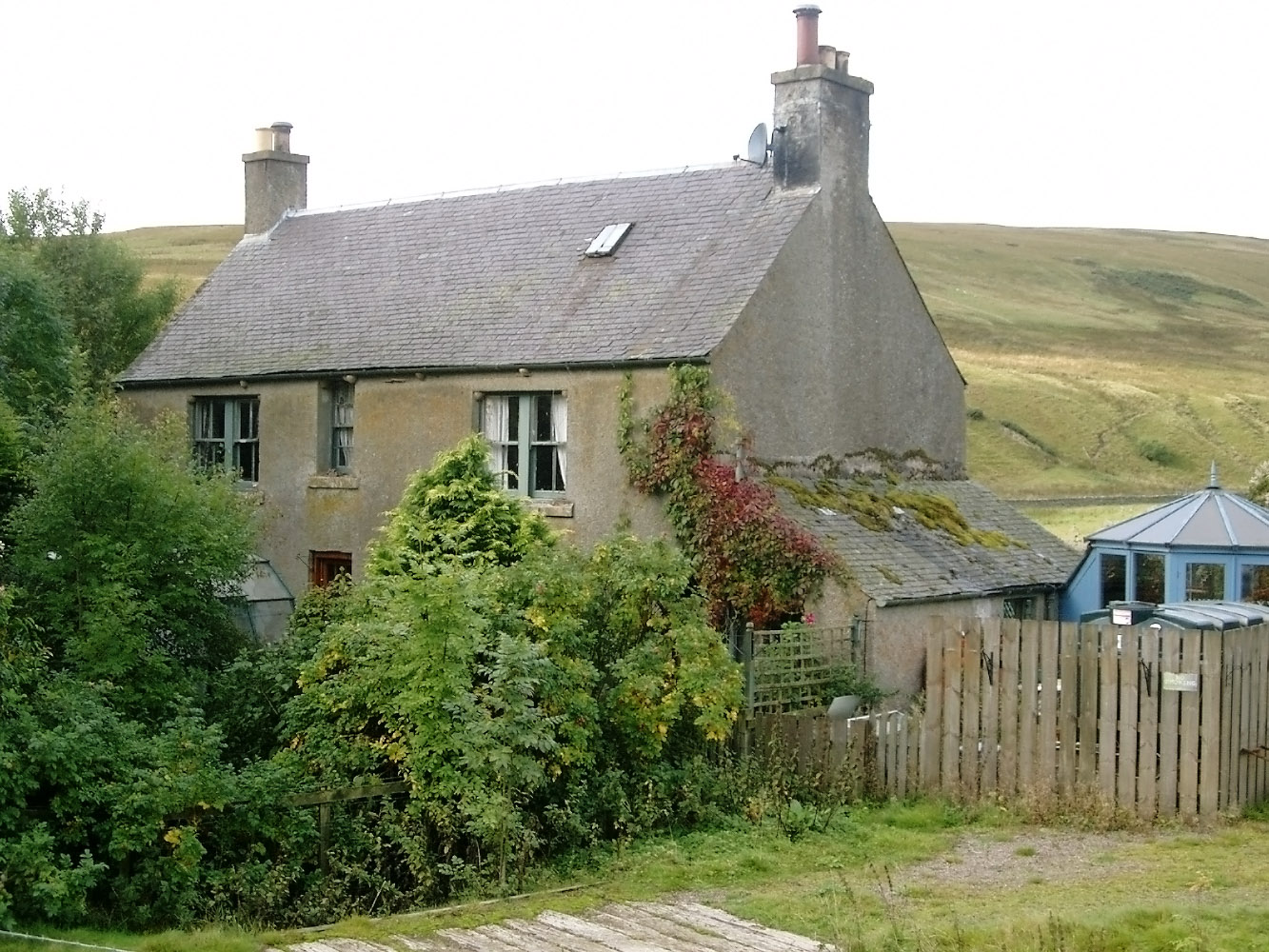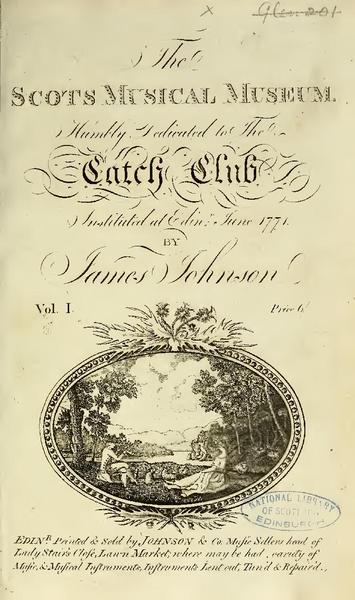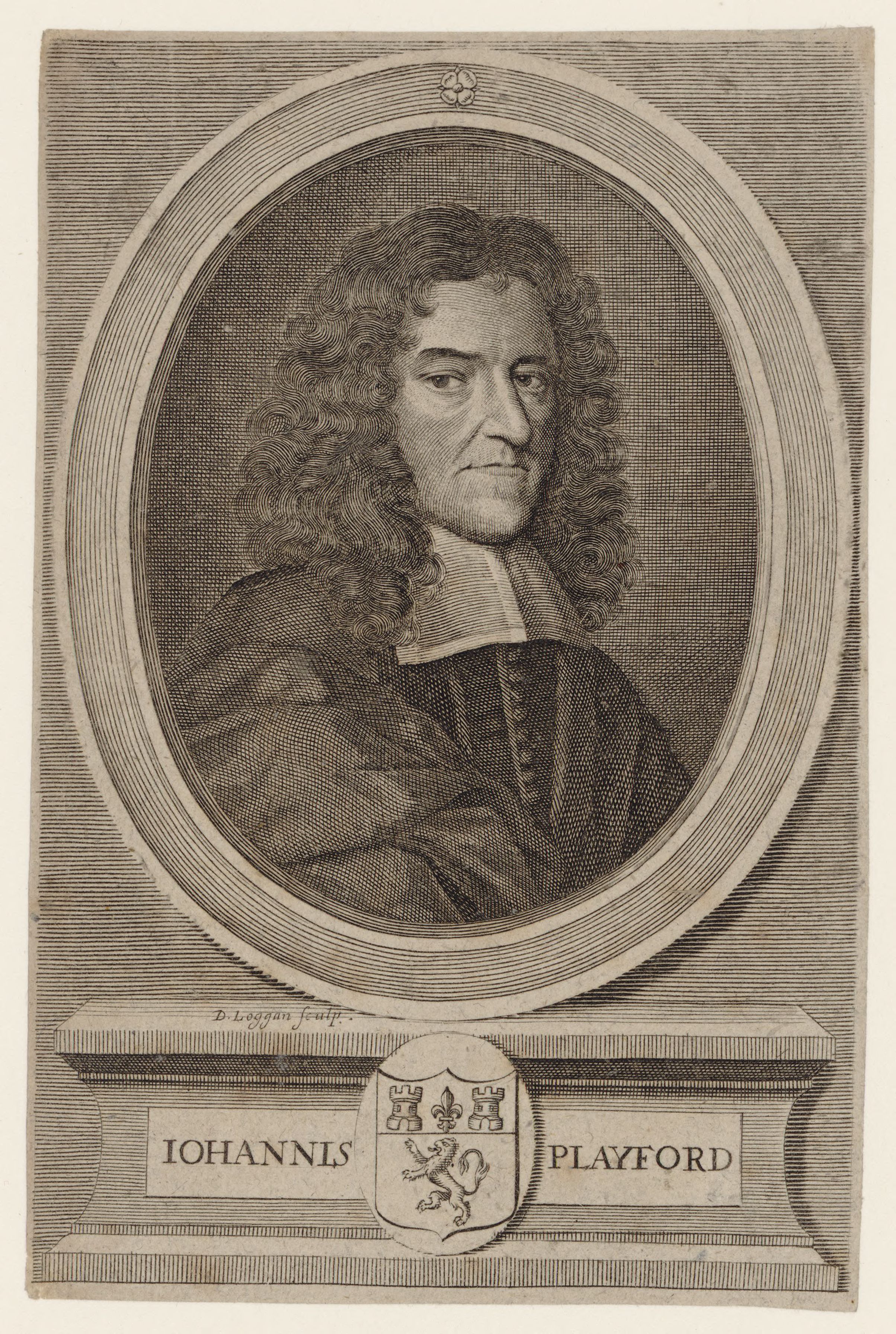|
Cock Up Your Beaver
''Cock Up Your Beaver'' is a song and poem by Robert Burns, written in 1792. It is written in Scottish dialect and the beaver refers to a gentleman's hat in an era when all high quality men's hats were made of felted beaver fur. It was based on an older song, published as "Johnny, cock up thy Beaver". It is widely claimed that this is found in The Dancing Master, a collection of folk tunes published by John Playford of London in 1657. However, this is disputed by Scottish music scholar John Glen who correctly states it first appears in the 1686 edition of "The Dancing Master". It was originally published in 1792 in volume 4 of the Scots Musical Museum and again in 1821 in a compilation by James Hogg, with four verses and musical notation of a tune. The original version was English, and ridiculed Scotsmen who settled in London after the accession of James VI to the throne of England, possibly satirizing the costumes of highland chiefs entering the lowlands. The song, hand-writt ... [...More Info...] [...Related Items...] OR: [Wikipedia] [Google] [Baidu] |
James Hogg
James Hogg (1770 – 21 November 1835) was a Scottish poet, novelist and essayist who wrote in both Scots and English. As a young man he worked as a shepherd and farmhand, and was largely self-educated through reading. He was a friend of many of the great writers of his day, including Sir Walter Scott, of whom he later wrote an unauthorised biography. He became widely known as the "Ettrick Shepherd", a nickname under which some of his works were published, and the character name he was given in the widely read series '' Noctes Ambrosianae'', published in ''Blackwood's Magazine''. He is best known today for his novel ''The Private Memoirs and Confessions of a Justified Sinner''. His other works include the long poem '' The Queen's Wake'' (1813), his collection of songs ''Jacobite Relics'' (1819), and his two novels ''The Three Perils of Man'' (1822), and ''The Three Perils of Woman'' (1823). Biography Early life James Hogg was born on a small farm near Ettrick, Selkirkshire, ... [...More Info...] [...Related Items...] OR: [Wikipedia] [Google] [Baidu] |
Cock Up Your Beaver
''Cock Up Your Beaver'' is a song and poem by Robert Burns, written in 1792. It is written in Scottish dialect and the beaver refers to a gentleman's hat in an era when all high quality men's hats were made of felted beaver fur. It was based on an older song, published as "Johnny, cock up thy Beaver". It is widely claimed that this is found in The Dancing Master, a collection of folk tunes published by John Playford of London in 1657. However, this is disputed by Scottish music scholar John Glen who correctly states it first appears in the 1686 edition of "The Dancing Master". It was originally published in 1792 in volume 4 of the Scots Musical Museum and again in 1821 in a compilation by James Hogg, with four verses and musical notation of a tune. The original version was English, and ridiculed Scotsmen who settled in London after the accession of James VI to the throne of England, possibly satirizing the costumes of highland chiefs entering the lowlands. The song, hand-writt ... [...More Info...] [...Related Items...] OR: [Wikipedia] [Google] [Baidu] |
Alan Cumming
Alan Cumming (born 27 January 1965) is a British actor. His London stage appearances include ''Hamlet'', the Maniac in ''Accidental Death of an Anarchist'' (for which he received an Olivier Award), the lead in '' Bent'', The National Theatre of Scotland's ''The Bacchae'' and Samuel Beckett's ''Endgame'' at The Old Vic, opposite Daniel Radcliffe. On Broadway, he has appeared in ''The Threepenny Opera'', as the master of ceremonies in ''Cabaret'' (for which he won a Tony Award), ''Design for Living'', and a one-man adaptation of ''Macbeth''. Cumming's film roles include his performances in '' Emma'', ''GoldenEye'' and as Nightcrawler in '' X2'' (X-Men 2), Loki in ''Son of the Mask'', and as Fegan Floop in the ''Spy Kids'' trilogy. Cumming also appeared on ''The Good Wife'', for which he was nominated for three Primetime Emmy Awards, two Screen Actors Guild Awards, two Golden Globe Awards and a Satellite Award. Cumming starred in the 2018–2019 CBS TV series ''Instinct''. In ... [...More Info...] [...Related Items...] OR: [Wikipedia] [Google] [Baidu] |
National Library Of Scotland
The National Library of Scotland (NLS) ( gd, Leabharlann Nàiseanta na h-Alba, sco, Naitional Leebrar o Scotland) is the legal deposit library of Scotland and is one of the country's National Collections. As one of the largest libraries in the United Kingdom, it is a member of Research Libraries UK (RLUK) and the Consortium of European Research Libraries (CERL). There are over 24 million items held at the Library in various formats including books, annotated manuscripts and first-drafts, postcards, photographs, and newspapers. The library is also home to Scotland's Moving Image Archive, a collection of over 46,000 videos and films. Notable items amongst the collection include copies of the Gutenberg Bible, Charles Darwin's letter with which he submitted the manuscript of ''On the Origin of Species,'' the First Folio of Shakespeare, the Glenriddell Manuscripts, and the last letter written by Mary Queen of Scots. It has the largest collection of Scottish Gaelic material of any ... [...More Info...] [...Related Items...] OR: [Wikipedia] [Google] [Baidu] |
James Johnson (engraver)
James Johnson (1753? – 26 February 1811) was a Scottish engraver, publisher and music seller known for his connection with the songbook ''The Scots Musical Museum'' and the poet Robert Burns. Life Johnson was born in the Ettrick Valley, the third of four children to Bessie Bleck and James Johnstan, a herdsman. He may have been trained to become an engraver under James Reed of Edinburgh. He was a prolific engraver of music and made the plates for over half the music printed in Scotland from 1772 to 1790. His early engravings were done on copper and included ''Six Canzones for Two Voices'' (1772), ''A Collection of Favourite Scots Tunes … by the Late Mr Chs McLean and other Eminent Masters'' (c1772) and ''Twenty Minuets'' (1773) by Daniel Dow. In 1786 he became burgess of Edinburgh. On 2 July 1791 he married Charlotte Grant, daughter of the writer Lauchlan Grant. They had a son, James, baptised on 13 September 1792, who appears not to have survived to his majority. He opened ... [...More Info...] [...Related Items...] OR: [Wikipedia] [Google] [Baidu] |
Turlough O'Carolan
Turlough O'Carolan ( ga, Toirdhealbhach Ó Cearbhalláin ; 167025 March 1738) was a blind Celtic harper, composer and singer in Ireland whose great fame is due to his gift for melodic composition. Although not a composer in the classical sense, Carolan is considered by many to be Ireland's national composer. Harpers in the old Irish tradition were still living as late as 1792, and ten, including Arthur O'Neill (harpist), Arthur O'Neill, Patrick Quin and Donnchadh Ó Hámsaigh, Donnchadh Ó hÁmsaigh, attended the Belfast Harp Festival. Ó Hámsaigh did play some of Carolan's music but disliked it for being too modern. Some of Carolan's own compositions show influences of the style of continental classical music, whereas others such as Carolan's ''Farewell to Music'' reflect a much older style of "Gaelic Harping". Biography Carolan was born in 1670 in Nobber, County Meath, where his father was a blacksmith. The family, who were said to be a branch of the Mac Brádaigh sept of Co ... [...More Info...] [...Related Items...] OR: [Wikipedia] [Google] [Baidu] |
James VI
James is a common English language surname and given name: *James (name), the typically masculine first name James * James (surname), various people with the last name James James or James City may also refer to: People * King James (other), various kings named James * Saint James (other) * James (musician) * James, brother of Jesus Places Canada * James Bay, a large body of water * James, Ontario United Kingdom * James College, a college of the University of York United States * James, Georgia, an unincorporated community * James, Iowa, an unincorporated community * James City, North Carolina * James City County, Virginia ** James City (Virginia Company) ** James City Shire * James City, Pennsylvania * St. James City, Florida Arts, entertainment, and media * ''James'' (2005 film), a Bollywood film * ''James'' (2008 film), an Irish short film * ''James'' (2022 film), an Indian Kannada-language film * James the Red Engine, a character in ''Thomas the Tank En ... [...More Info...] [...Related Items...] OR: [Wikipedia] [Google] [Baidu] |
Scots Musical Museum
The ''Scots Musical Museum'' was an influential collection of traditional folk music of Scotland published from 1787 to 1803. While it was not the first collection of Scottish folk songs and music, the six volumes with 100 songs in each collected many pieces, introduced new songs, and brought many of them into the classical music repertoire. The project started with James Johnson, a struggling music engraver / music seller, with a love of old Scots songs and a determination to preserve them. In the winter of 1786 he met Robert Burns who was visiting Edinburgh for the first time, and found that Burns shared this interest and would become an enthusiastic contributor. The first volume was published in 1787 and included three songs by Burns. He contributed 40 songs to volume 2, and would end up responsible for about a third of the 600 songs in the whole collection as well as making a considerable editorial contribution. The final volume was published in 1803 and contained the first ... [...More Info...] [...Related Items...] OR: [Wikipedia] [Google] [Baidu] |
Robert Burns
Robert Burns (25 January 175921 July 1796), also known familiarly as Rabbie Burns, was a Scottish poet and lyricist. He is widely regarded as the national poet of Scotland and is celebrated worldwide. He is the best known of the poets who have written in the Scots language, although much of his writing is in a "light Scots dialect" of English, accessible to an audience beyond Scotland. He also wrote in standard English, and in these writings his political or civil commentary is often at its bluntest. He is regarded as a pioneer of the Romantic movement, and after his death he became a great source of inspiration to the founders of both liberalism and socialism, and a cultural icon in Scotland and among the Scottish diaspora around the world. Celebration of his life and work became almost a national charismatic cult during the 19th and 20th centuries, and his influence has long been strong on Scottish literature. In 2009 he was chosen as the greatest Scot by the Scottish pub ... [...More Info...] [...Related Items...] OR: [Wikipedia] [Google] [Baidu] |
John Playford
John Playford (1623–1686/7) was a London bookseller, publisher, minor composer, and member of the Stationers' Company, who published books on music theory, instruction books for several instruments, and psalters with tunes for singing in churches. He is perhaps best known today for his publication of ''The English Dancing Master'' in 1651. Biography Playford was born in Norwich, the younger son of John Playford. He served an apprenticeship in London with publisher John Benson from 1639/40 to 1647, after which he remained in the capital, opening a shop in the porch of Temple Church. Playford was clerk to the church, and probably resided with his wife Hannah over the shop until 1659. He was, it appears (from the title-pages of his publications) temporarily in partnership with John Benson in 1652, and with Zachariah Watkins in 1664 and 1665. Under the Commonwealth (1649–60), and for some years of Charles II's reign, Playford almost monopolised the business of music pu ... [...More Info...] [...Related Items...] OR: [Wikipedia] [Google] [Baidu] |
The Dancing Master
''The Dancing Master'' (first edition: ''The English Dancing Master'') is a dancing manual containing the music and instructions for English country dances. It was first published in 1651 by John Playford. History It was published in several editions by John Playford and his successors from 1651 until . The first edition contained 105 dances with single-line melodies. The 1651 book ''The Dancing Master'' by John Playford had been designed for teaching dancing. It was originally small so that the dancing master could hide it under his cloak and consult it surreptitiously. Subsequent editions introduced new songs and dances, while dropping others, and the work eventually encompassed three volumes. Dances from ''The Dancing Master'' were re-published in arrangements by Cecil Sharp in the early 20th century. In 1957 Margaret Dean Smith completed her facsimile book ''Playford's English Dancing Master''. This work had been the first publication of English dance tunes and her publi ... [...More Info...] [...Related Items...] OR: [Wikipedia] [Google] [Baidu] |







